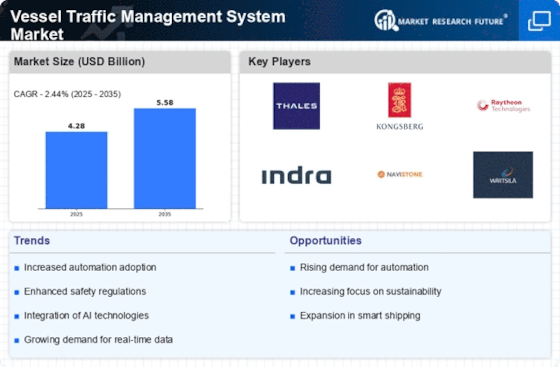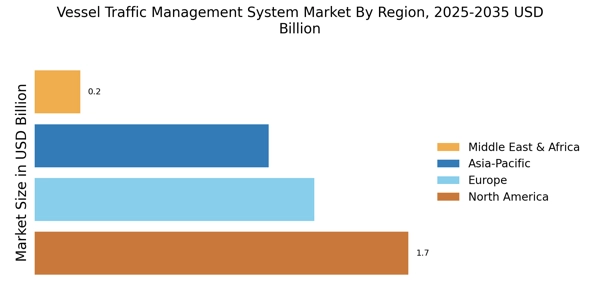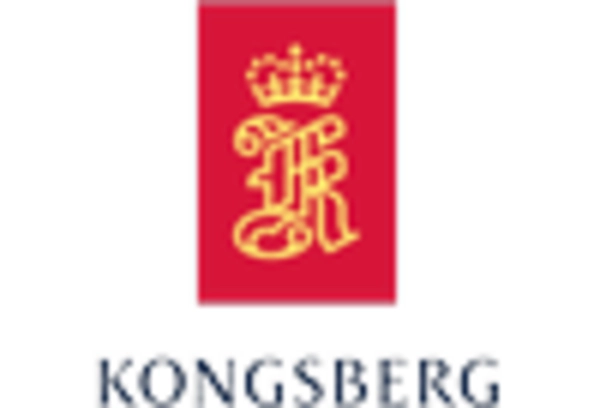Increased Maritime Trade
The Vessel Traffic Management System Market is experiencing growth due to the rise in maritime trade activities. As economies expand, the demand for efficient shipping routes and port operations intensifies. The International Maritime Organization has reported a steady increase in global shipping volumes, which necessitates advanced traffic management systems to ensure safety and efficiency. The integration of these systems aids in optimizing vessel movements, reducing congestion, and enhancing overall operational efficiency. Consequently, stakeholders are investing in sophisticated Vessel Traffic Management Systems to accommodate the growing trade demands, thereby driving market expansion.
Enhanced Safety and Security Measures
Safety and security are paramount in maritime operations, propelling the Vessel Traffic Management System Market forward. The increasing number of maritime accidents and security threats has led to a heightened focus on implementing robust traffic management solutions. According to maritime safety authorities, the adoption of advanced Vessel Traffic Management Systems has been linked to a significant reduction in incidents at sea. These systems provide real-time monitoring and data analytics, enabling authorities to respond swiftly to emergencies. As safety regulations become more stringent, the demand for effective Vessel Traffic Management Systems is likely to rise, further stimulating market growth.
Technological Integration and Innovation
The Vessel Traffic Management System Market is significantly influenced by ongoing technological integration and innovation. The advent of artificial intelligence, machine learning, and big data analytics has transformed traditional traffic management systems into sophisticated platforms capable of predictive analysis and real-time decision-making. This technological evolution enhances operational efficiency and reduces costs associated with vessel operations. Market data indicates that investments in smart technologies within the maritime sector are projected to increase, as stakeholders seek to leverage these advancements for improved traffic management. Consequently, the integration of cutting-edge technologies is expected to drive the Vessel Traffic Management System Market forward.
Growing Investment in Port Infrastructure
Investment in port infrastructure is a critical driver for the Vessel Traffic Management System Market. As ports expand and modernize to accommodate larger vessels and increased traffic, the need for advanced traffic management solutions becomes evident. Recent data indicates that many countries are allocating substantial budgets for port development projects, which include the integration of sophisticated Vessel Traffic Management Systems. These systems facilitate better coordination among vessels, reduce turnaround times, and enhance overall port efficiency. As investments in port infrastructure continue to grow, the demand for effective Vessel Traffic Management Systems is likely to rise, further propelling market growth.
Environmental Regulations and Sustainability
The Vessel Traffic Management System Market is increasingly shaped by environmental regulations and sustainability initiatives. Governments and international bodies are imposing stricter regulations to minimize the environmental impact of maritime activities. The implementation of Vessel Traffic Management Systems plays a crucial role in achieving compliance with these regulations by optimizing routes and reducing emissions. Market analysis suggests that the demand for eco-friendly traffic management solutions is on the rise, as stakeholders aim to align with sustainability goals. This trend not only enhances operational efficiency but also positions companies favorably in a market that increasingly values environmental responsibility.
















